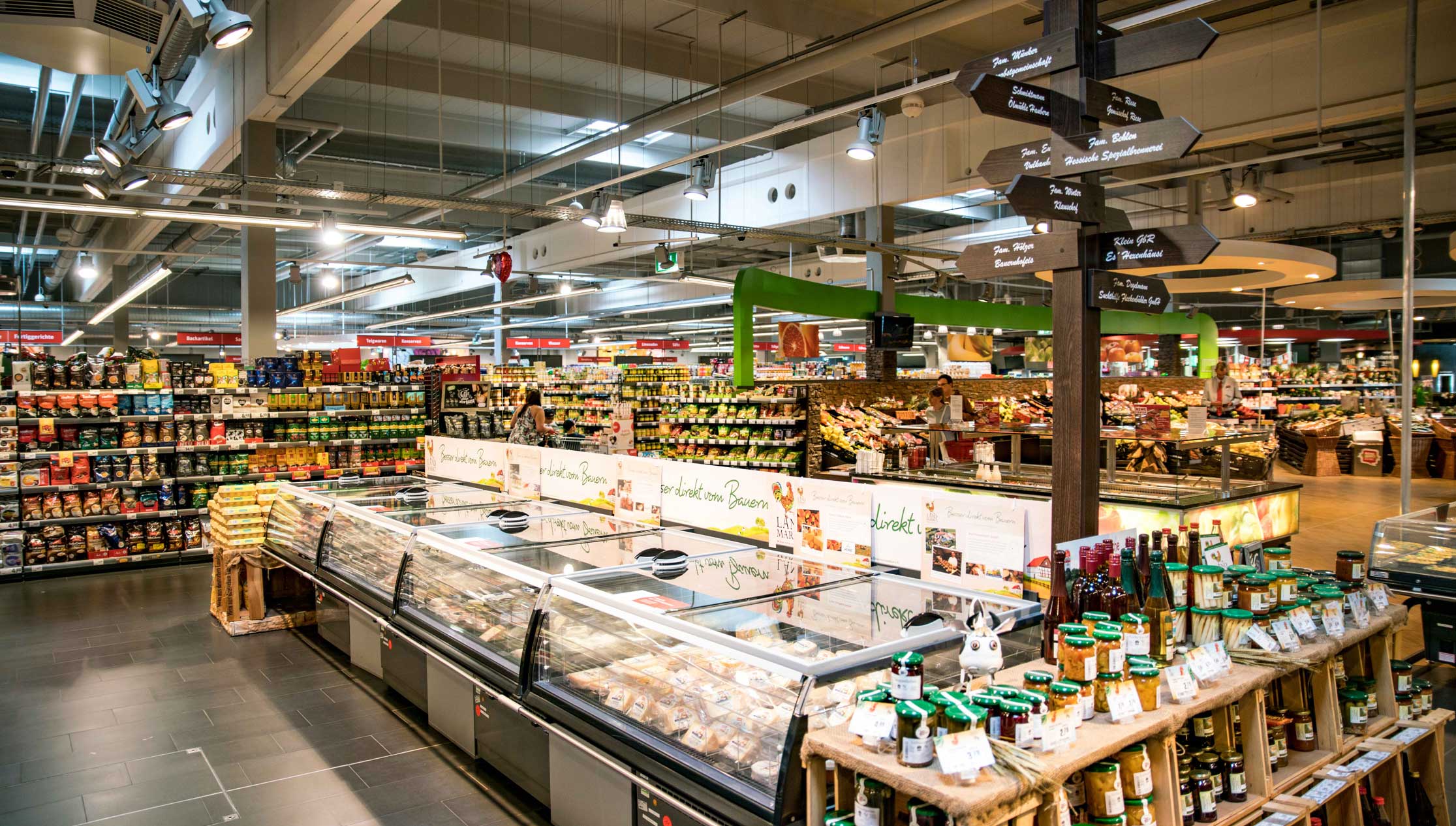
14 May Sustainable Growth in the Food Retail Industry in France Interview with Abhishek Jha, President of Greenman Arth, for the GRI Club Europe
Are players in the food retail industry well-positioned for sustainable growth and rapid transformation?
We have witnessed a period of profound market upheaval in the food retail industry in France and Europe, largely influenced by major events such as the Covid-19 pandemic. The pandemic had a positive impact on the sector, revealing its resilient and essential nature. Thus, the food retail industry is defined by sustainable growth. To maintain this growth, major retailers are required to undergo transformation to address profound changes and meet new customer demands.
In 2023, we observed three major groups of independent retailers that stood out, with E.Leclerc leading the pack, closely followed by Carrefour and Intermarché. We also noted the rise of discount retailers such as Aldi and Lidl, as well as the restructuring of the Casino group. These multiple events demonstrate intense competition and frequent renewal within the sector. On the other hand, there are customers with demands for more responsible consumption, who tend to prefer green products, are willing to pay more for quality products, and endorse local agriculture and short supply chains.
In this evolving context, sustainability remains a crucial issue for the industry. Firstly, because environmental, social, and governance (ESG) issues are becoming increasingly important, and secondly, because government regulations, such as the Climate and Resilience Law, require supermarkets and hypermarkets to transition to a less energy-intensive and more environmentally friendly model.
Certainly, this type of transition requires significant financial investments, and this is where Greenman Arth comes in. As a strategic partner, Greenman Arth can offer valuable support to players in the food retail industry for rapid transformation. Through our integrated management strategy, we can help our tenants identify improvement opportunities, implement more sustainable practices, and reduce their operational costs.
For example, Greenman Arth can propose innovative solutions to reduce the energy consumption of supermarkets and hypermarkets, such as installing solar panels on rooftops, hyperchargers in parking lots, or implementing smart energy management systems. These initiatives not only reduce environmental footprint but can also generate significant long-term savings.
Moreover, in the face of growth and transformation challenges, it is essential to consider the involvement of a supermarket in the social life of a community and that these real estate assets are real generators of social impact. Furthermore, collaborations and partnerships between industry players, governments, NGOs, and civil society organizations are essential to promote sustainable growth and raise consumer awareness about sustainability issues. These partnerships can help identify and address the complex challenges facing the food retail industry while promoting innovation and the implementation of sustainable solutions.
Finally, consumer education and awareness play a crucial role in promoting sustainable practices within the food retail industry. Our teams develop actions to be carried out in collaboration with our tenants to conduct awareness campaigns to inform consumers about sustainability issues and encourage them to adopt more responsible purchasing behaviors.
Thus, players in the food retail industry in France and Germany are facing significant challenges in terms of sustainability and rapid transformation of their operations. To ensure sustainable growth in the sector, it is essential to offer them turnkey support with an innovative approach. And Greenman Arth is committed to forging strategic partnerships with our tenants to effectively meet their sustainable growth needs.

Abhishek Jha co-chairs the “Shopping and Retail” meeting at France GRI 2024 on May 28 and 29 in Paris. (Credit: GRI Club)
Digitalization in Food Retail: How New In-Store Shopping Journeys Shape the Commerce of Tomorrow?
Digitalization has profoundly transformed how consumers behave in supermarkets and hypermarkets. This shift towards a more personalized and seamless shopping experience is largely driven by the increasing use of technology in the food retail sector. By analyzing the impact of these new technologies on in-store shopping journeys, it is clear that the commerce of tomorrow will be heavily shaped by digitalization.
One of the main manifestations of this transformation is the personalization of the customer experience. Through customer data analysis, retailers can segment their customer base into homogeneous groups, allowing them to better understand individual preferences and purchasing behaviors. This precise segmentation paves the way for tailored offers and promotions, tailored to each group of consumers. For example, a loyal customer may benefit from personalized discounts on their favorite items, which promotes both loyalty and customer satisfaction.
Furthermore, technology is used to intelligently recommend products. Through sophisticated algorithms, retailers can analyze purchase histories, online searches, and market trends to offer relevant suggestions to each customer. This personalization goes beyond simple product recommendations and extends to shelf layout, product presentation, and even in-store ambiance. For example, a customer passionate about Italian cuisine could be directed to an aisle featuring Italian products, accompanied by Italian music, creating an immersive and personalized experience.
However, this personalization also raises ethical questions regarding consumer privacy. It is essential that retailers adhere to privacy standards and ensure that the use of data remains transparent and beneficial to the consumer. By establishing a trusting relationship with customers, retailers can strengthen long-term engagement and loyalty.
In parallel, technology is also revolutionizing the logistical aspects of food retail. It enables demand prediction, delivery planning, stock management, and thus improves the click-and-collect service, which requires optimized stock management.
In a context where consumer expectations are evolving rapidly, food retail players must adapt by offering innovative and personalized shopping experiences. Technology represents a valuable tool in this quest for transformation, offering companies the ability to better understand and serve their customers while improving operational efficiency. By investing in these emerging technologies, they can not only remain competitive in an ever-changing market but also shape the future of retail.
